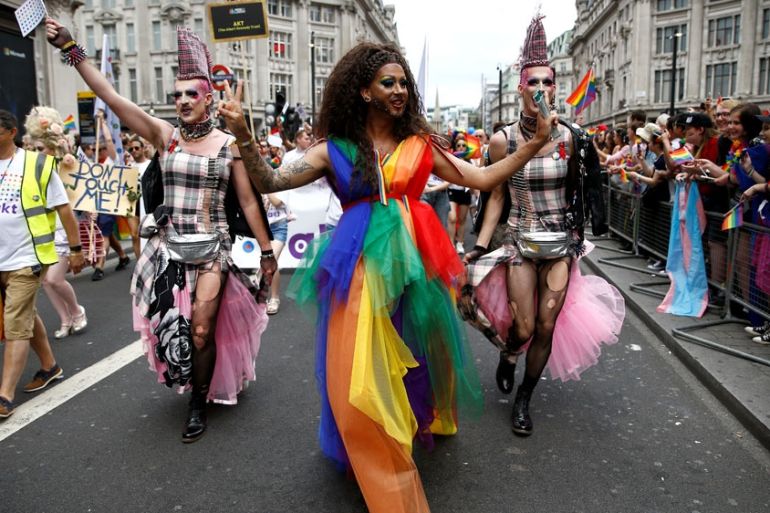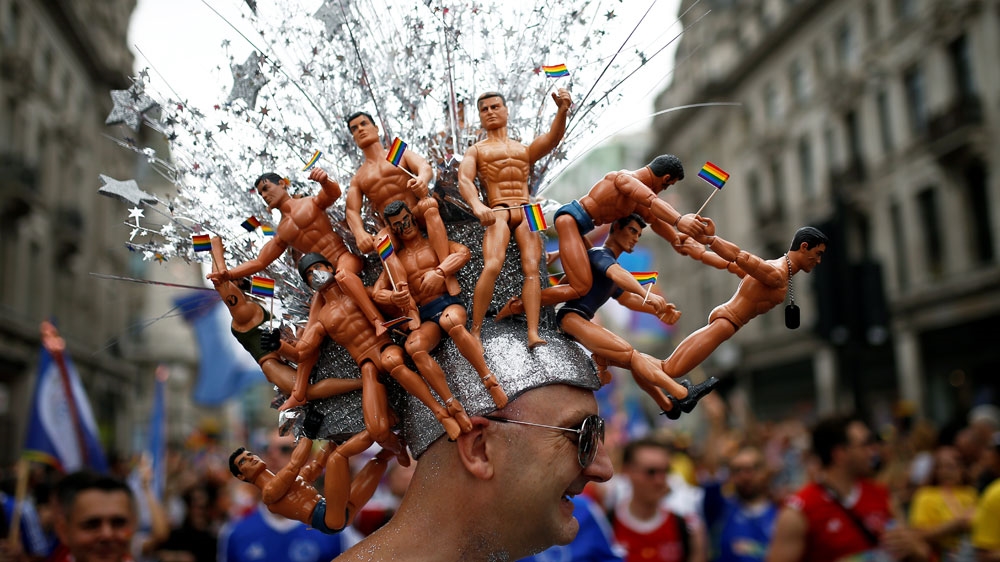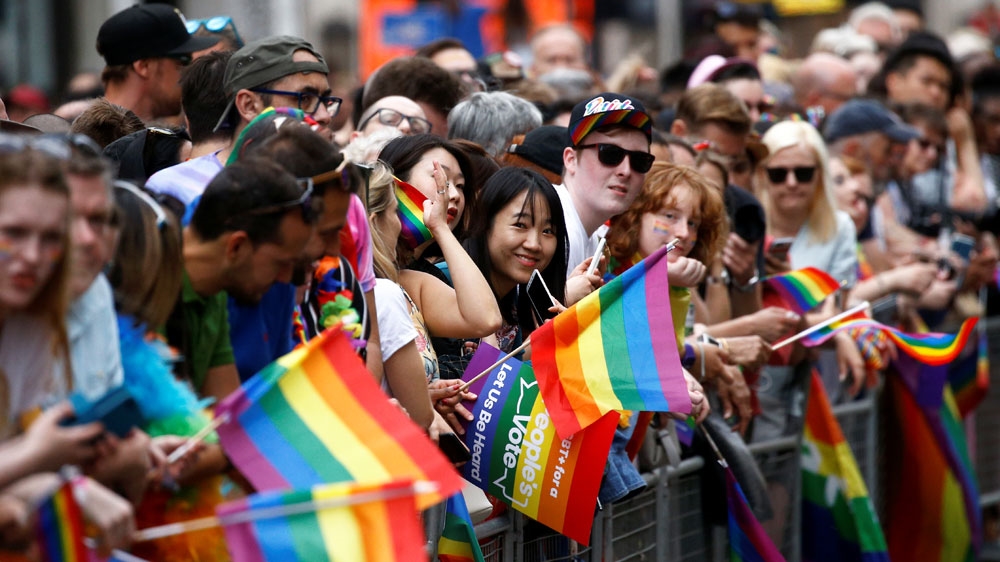London pride march draws thousands as homophobic hate crimes rise
Activists say widening acceptance of LGBT people stands in sharp contrast to rise in hate crimes against the community.

London, United Kingdom – Hundreds of thousands of people have taken to the streets of central London for the United Kingdom‘s largest LGBT pride parade.
Shops and restaurants gave out colourful badges, bracelets and flags as people stopped to pose for photos beside rainbow wall art and pride-themed shop fronts on Saturday.
Keep reading
list of 4 itemsIraq criminalises same-sex relationships with maximum 15 years in prison
In Australia, women-only app becomes latest front in war over trans rights
‘No good evidence’ for gender care for youth over long term, review finds
“I have come to support my daughters,” said Keely as she queued to enter the pride arena in Trafalgar Square, where a live music stage was set up.
Her two daughters, whose cheeks were painted with rainbow flags and sprinkled in glitter, recently came out as bisexual and gay to their mother.
“My advice to parents with LGBT children: Listen, be open and remember you love them,” said Keely.
London pride parade, the UK’s biggest LGBT event, marked the 50th anniversary of the Stonewall uprising, when gay activists clashed with police in New York, kickstarting an equality movement worldwide.
The year also marked 30 years since the founding of UK’s leading gay rights charity, Stonewall, by a group fighting to repeal Section 28 of the Local Government Act, which sought to prevent the “promotion” of homosexuality in schools.
Excluding Northern Ireland, which does not allow equal marriage, the union is now a reality in other parts of the UK, while the contentious Section 28 has been consigned to history.

Homophobia on the rise
Even as the annual pride march attracts more and more people in the UK, Stonewall said LGBT people faced “shocking” levels of hate crimes and discrimination.
According to a 2017 survey by the charity based on YouGov polling of more than 5,000 LGBT people, one in five had experienced a hate crime or incident because of their sexual orientation in the previous year.
The report also said four in five anti-LGBT hate crimes went unreported, with younger victims particularly reluctant to go to the police.
London’s Metropolitan Police confirmed the rise in hate crimes, saying the number of incidents went up from 1,488 in 2014 to 2,308 last year. Police said the rise could also be attributed to a greater willingness of victims to report anti-gay crimes.
In May, two women on a London bus were physically attacked because they refused to kiss as demanded by a group of men.
One of the victims, who was identified as Melania Geymonat, uploaded a photo on Facebook showing her white shirt splattered in blood and a gash on her nose, while her girlfriend was also badly injured.
Simon Ware, vice chair at Amnesty UK LGBTI Network, told Al Jazeera there was “plenty more to do” for gay rights in the country. “We must not get complacent,” he said.
Ware said Amnesty’s focus has been the “widespread” issue of transphobia in the UK. “A number of right-wing tabloids and newspapers have been particularly transphobic,” he said.
The number of transgender hate crimes recorded by the police in England, Scotland and Wales rose by 81 percent last year compared with 2017, according to data collected by the BBC.
In a tweet posted in May, leading transgender activist Charlie Craggs said “anyone who has or is being bullied” should respond with more “success” in life and “not letting them change what they hate about you”.

Ware said a shrinking number of public spaces for LGBT people was another issue. Research by University College London found that the number of gay clubs in the capital had fallen from 125 in 2006 to just 53 in 2017.
Participants in the London pride march hoped the corporates who had sponsored the event to champion LGBT rights. Pride London was sponsored by more than 30 companies.
London’s mayor Sadiq Khan, who was a headline sponsor, wrote that he expected the corporate sponsors “to be championing LGBTQ rights in their businesses both here and globally”.
“It’s great that conglomerates are sponsoring pride floats, but they also operate in countries where being gay is punishable by law. I want to know what they’re doing to support equality for sexual minorities in those countries,” said Joe, a pride marcher.